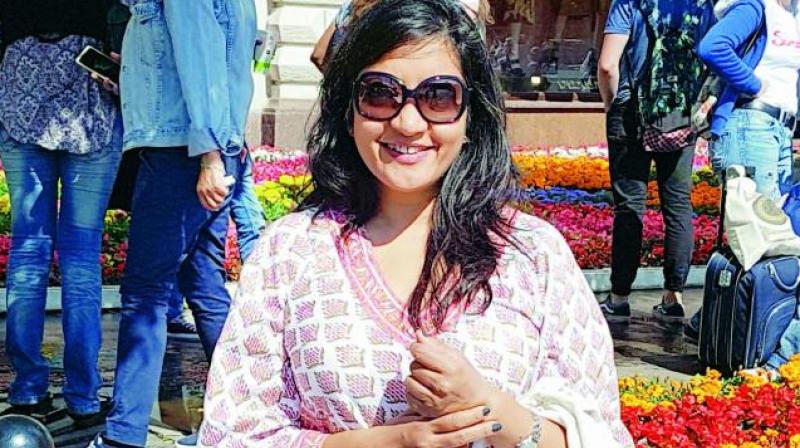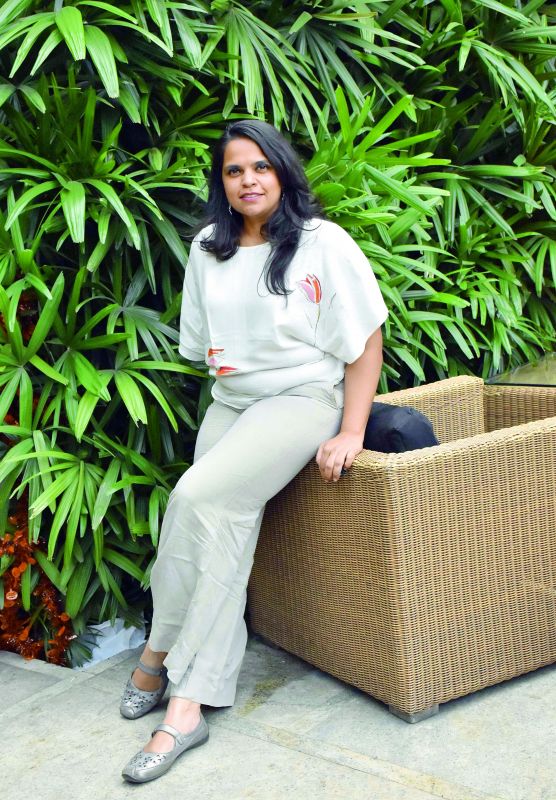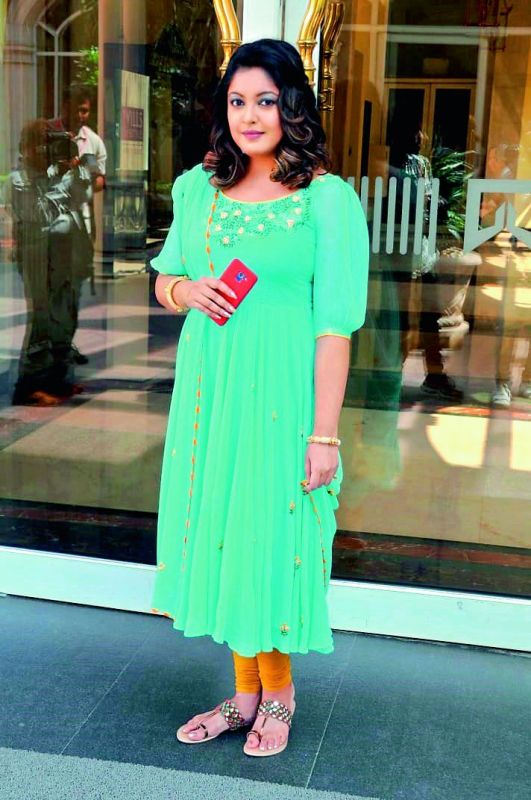Salute to the women who dared
Victims of sexual harassment now have a platform to speak out; You cannot but admire the women who carved a path for their less confident sisters.

October 2017 brought a watershed moment for women who had been silently suffering sexual abuse at the workplace for years. It was the month that saw the genesis of #MeToo, a movement on social media that spread like wildfire, singeing society’s stalwarts in its wake.
When actress Tanushree Dutta first accused actor Nana Patekar of sexual misbehaviour on a movie set in 2010, her charge had elicited no response. In 2018, when she recounted the ordeal, Kangana Ranaut accused Vikas Bahl, Sandhya Mridul, Navneet Nishan, Deepika Amin, and Vinita Nanda pointed fingers at Alok Nath and Sona Mahapatra accused Kailash Kher of misconduct.
 For journalist and author Sandhya Menon, the system is not supportive unless you have certain privileges — power, money and education.
For journalist and author Sandhya Menon, the system is not supportive unless you have certain privileges — power, money and education.
Skeletons tumbling out
Skeletons continued to tumble out of the closet. Actress Geetika Tyagi accused filmmaker and scriptwriter Subhash Kapoor of molestation and Flora Saini spoke of harassment by producer Gaurang Doshi.
Journalists, too, broke their silence on sexual abuse. After Priya Ramani set the ball rolling, Saba Naqvi, Ghazala Wahab, author Shuma Raha, Prerna Singh Bindra and many others followed. Sandhya Menon tweeted that K.R. Sreenivas, resident editor, Times of India had behaved inappropriately with her years ago.
Tanushree points out, “Harassment cases are not taken seriously in our country. I am fighting and I know for sure I will get justice. It needs some discomfort and sacrifice or else we will move towards complete anarchy.” Elaborating on her experience, she says, “The incident sent me spiralling into deep depression in 2008. The harassment, manipulation, threats, horrible things spoken about me, and the humiliation was too much to endure, and often drove me to thoughts of giving up.”
 Tanushree Dutta, actress.
Tanushree Dutta, actress.
Never too late
Should #MeToo have come a long time ago? “The process should have begun long ago — from the time women stepped out of home to earn a living and support their families. But, it’s better late than never. Let each candle light another,” says Ghazala Wahab, executive editor, Force India. The effects of public naming and shaming can be seen every day as heads roll in the wake of the #MeToo meltdown. Predators are being unmasked across the spectrum. “This is much needed. Had it not been for this campaign, journalist-cum-minister M.J. Akbar would not have stepped down,” points out firebrand journalist Swati Chaturvedi.
While that’s progress, the fate of the #MeToo movement in India still hangs in a balance. Even though the media has witnessed exits of high-profile journalists like Sreenivas and founding-editor of DNA, Mumbai, Gautam Adhikari, after they were named, others like G.S. Vasu, editor, The New Indian Express, and T.S. Sudhir, political analyst and ex-editor of India Today, south, are yet to respond.
Swati adds, “This guy runs a news channel and has a history of attacking women, yet nothing has been done about him. The campaign, it is evident, has not gone far enough. Editor and Tehelka promoter Tarun Tejpal has been facing allegations of rape in a so-called ‘fast-track’ court from 2013. We are now nearing the end of 2018 and hearings still get deferred.
“Sexual harassment is so rampant that R.K. Pachauri, former executive vice chairman of TERI, who loves to describe himself as a “Nobel laureate” and who was on the prime minister’s council for climate change, got away for years. It took three long years for charges to be finally slapped on Pachauri last September 14 in the trial court.”
Not about sex
The year old #MeToo is not so much about sex as it is about power or rather, its abuse. Jayna Kothari, co-founder, Centre for Law and Policy Research, says, “The #MeToo movement should have started a long time ago. At least it is happening now, and we should be supportive. It is helping raise awareness about how pervasive sexual harassment is, and that it is faced by women in every industry. Social media allows people to talk openly about their experiences of sexual harassment but the women who do, are still being victimised and losing their jobs.”
While #MeToo has opened up discussion of sexual harassment has it raised awareness to the necessary level?
Ghazala says, “#MeToo has created a platform offering easy recall, trust and support, leading to the creation of a ‘sisterhood of victims’ in which women who are outing their harassers are finding both moral and emotional support. Earlier, women were hesitant to speak out because in addition to the possible loss of their jobs, they feared loss of reputation, and vilification. Not so any longer. More than creating awareness about the issue of sexual harassment at the workplace, #MeToo has given women the courage and confidence to speak out.”
It’s a discussion that has always happened behind closed doors, but social media gave it space for public expression. “The campaign has just begun. It still has a long way to go. And it is not just social media, but the media per se that has stood behind the women who are speaking out about their experiences. We have to understand that most women who are speaking out are not seeking punitive action against the perpetrators. What they are trying to do is hammer at the wall of respectability that these men have built around themselves. They want to create awareness about habitual offenders, shame them into behaving themselves and in the bargain ensure that work environment across industries improve,” stresses Ghazala.
And yet, there still seem to be a lot of people not only reluctant to be a part of it, but to discuss — even with family, friends and classmates — issues around sexual assault and harassment. “It’s entirely up to those who have faced harassment and abuse to talk about it when they are ready. Nevertheless, this is a good time for them to push themselves a little more and take decisions,” says Sandhya Menon.
So, what’s the real problem? ‘Hostile work environment’ is a very serious form of sexual harassment at the workplace created when the workspace has a sexually charged atmosphere. This includes loaded remarks being made by co-workers and supervisors in relation to a woman’s clothes, looks on a routine basis, misogynistic talk, and the all-pervasive acceptance of sexual harassment as a form of entitlement or part of the work culture.
Why has the campaign stagnated only around well-known personalities and celebrity perpetrators of the crime? The reasons are many feels Sandhya, but the prime cause is lack of education on rights and boundaries. “Rights as an employee or intern are missing. There were many men who were called out during this thing and they said it was consensual and that they didn’t know having a sexual relationship with women much younger than them or with an intern constituted a hostile work environment.”
An unchallenged patriarchal mindset has engendered the idea of male entitlement. This is the reason many men in positions of power do not even realise exactly when they cross a boundary. “There is great mistrust of the legal system, the police,” notes Sandhya.
Victims need the confidence to complain, an assurance that their disclosures will be protected and guarantees that retaliation will be subject to civil or criminal liability. If these mechanisms aren’t in place, harassment will resume unreported after the #MeToo momentum wanes and society moves on to the next hashtag. “We need to support the women who raise these issues and provide them with means to take up cases legally,” notes Jayna.
The main thing the #MeToo movement proves is the failure of systems in the country to deal with the legal injury of a woman subjected to sexual harassment. “The system is not supportive unless you have certain privileges — power, money and education,” stresses Sandhya.
Reframing justice
While #MeToo is certainly far-reaching, the movement and our society at large have missed something critical — we must reframe what justice and what healing can look like for both victims of sexual violence and those who commit that violence.
In this case, our legal system has never really been able to account for situations where the oppressed becomes the oppressor, and a traumatised victim can eventually become the aggressor.
Most of our public spaces are overcrowded by men, which forces a lot of women to try and make themselves as invisible as possible. “We need a change of mindset. And we need to emphasise that areas like the workplace, for instance, are shared spaces, where men just have to accept women as equals. Of course, all this will not happen overnight; but a process has begun and change can be seen in the manner in which even men are coming out in support of women,” concludes Ghazala.

